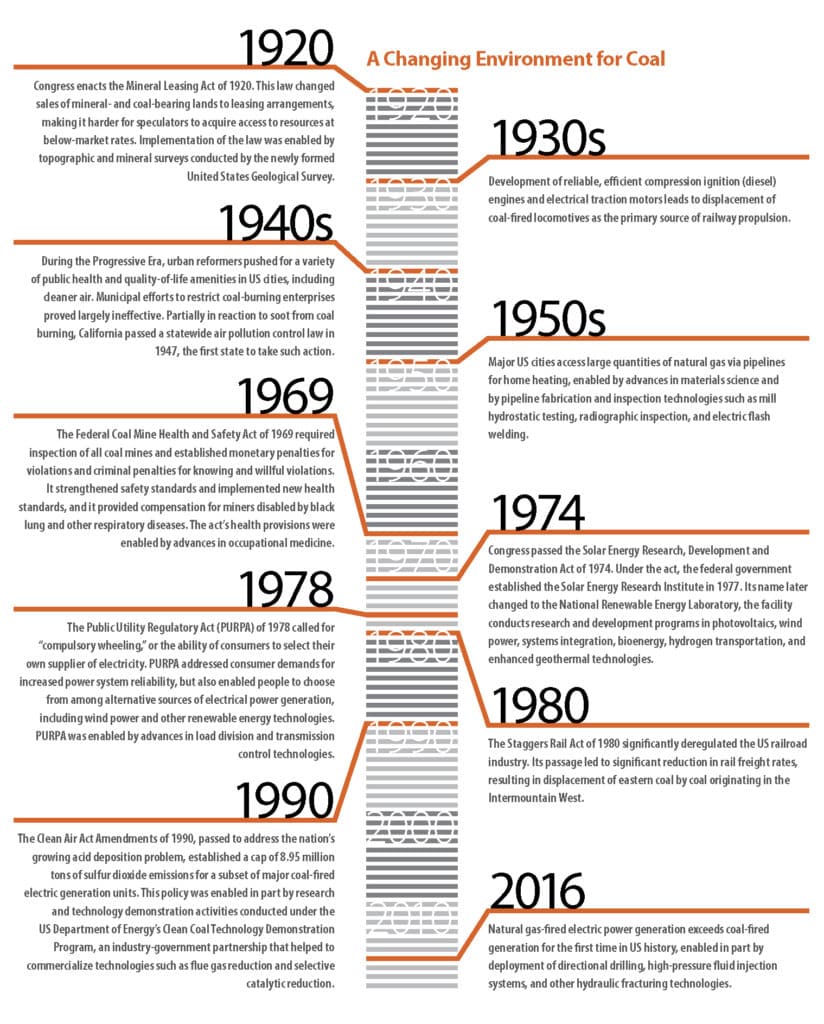President Obama’s War on Coal? Some Historical Perspective
In Massachusetts v. EPA (2007), the Supreme Court ruled that greenhouse gases are pollutants under the provisions of the 1970 Clean Air Act. Subject to this ruling, the Environmental Protection Agency determined that greenhouse gas emissions endanger public health and the welfare of current and future generations. Working in response to EPA’s endangerment finding, the Obama administration developed a greenhouse gas regulatory program called the Clean Power Plan. Mandating time-honored tools such as investments in energy efficiency, deployment of renewable energy technologies, improvements in thermal efficiency of existing coal-fired power plants, and increased utilization of lower-emitting generating units, the Clean Power Plan aimed at reducing greenhouse gas emissions from the power sector by about one-third by 2030.
On October 9, 2017, EPA Administrator Scott Pruitt announced the agency’s decision to repeal the Clean Power Plan. “The war on coal is over,” Pruitt declared at an announcement event in Kentucky, going on to say, “The EPA and no federal agency should ever use its authority to say to you: we are going to declare war on any sector of our economy.” He added in conclusion, “the past administration was using every bit of power and authority to use EPA to pick winners and losers on how we generate electricity in this country. That is wrong.”
It is not uncommon for presidents and other senior officials to invoke the “war” metaphor in an effort to rouse a political base and galvanize support in the pursuit of policy objectives. For instance, Lyndon Johnson fought a war on poverty, Richard Nixon prosecuted a war on cancer, and Ronald Reagan waged a war on drugs. Some people may even recall J. Edgar Hoover’s war on crime. As a review of selected historical circumstances suggests, Pruitt’s use of the war metaphor to characterize the Clean Power Plan is at best misleading and in some ways downright inaccurate.
Like all economic sectors, the power industry can be affected by a variety of factors, including market trends, changes in consumer preference and public value, and implementation of regulatory actions intended to address voter concerns regarding public health, worker safety, economic competitiveness, or environmental protection. Over the past century changes in social value, market trends, and public policy have all affected the fortunes of the coal sector. As suggested by the timeline, many of these changes have been enabled by the free flow of ideas and advances in science and technology.

